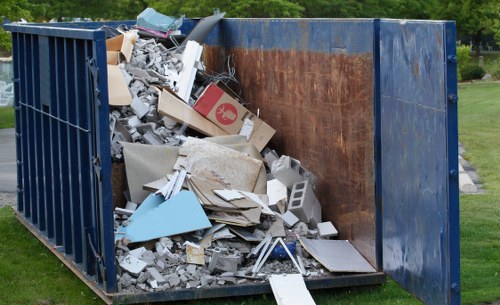Council Large Item Collection in Commercial Waste Collection

Managing waste effectively is a critical component of maintaining cleanliness and sustainability within commercial environments. One significant aspect of this waste management strategy is the Council Large Item Collection service, which plays a pivotal role in the disposal of bulky waste items.
This service is designed to assist businesses in disposing of large, non-essential items that cannot be collected through regular waste collection routines. Items such as old office furniture, machinery, electronics, and other bulky materials are typical candidates for this service.
Understanding the intricacies of large item collection can help businesses streamline their waste management processes, ensure compliance with local regulations, and contribute to environmental conservation efforts.

Understanding Council Large Item Collection
The Council Large Item Collection is a specialized service provided by local authorities to handle the removal of bulky waste from commercial establishments. This service is particularly beneficial for businesses that generate significant amounts of large waste items regularly.
Unlike standard waste collection services, which handle everyday refuse, the large item collection focuses on disposing of oversized items that require separate handling due to their size and nature.
By utilizing this service, businesses can ensure that large waste items are disposed of responsibly, reducing the risk of environmental pollution and promoting recycling and reuse where possible.

Benefits of Utilizing Council's Large Item Collection Service
Implementing the Council Large Item Collection service offers numerous advantages for commercial entities:
- Regulatory Compliance: Ensures that businesses adhere to local waste disposal regulations.
- Environmental Responsibility: Promotes the reduction of landfill waste through recycling and responsible disposal.
- Operational Efficiency: Streamlines the waste management process, allowing businesses to focus on core activities.
- Cost-Effective: Reduces the need for businesses to invest in their own waste disposal infrastructure.
- Public Health and Safety: Minimizes potential hazards associated with improperly disposed large items.

Types of Large Items Typically Collected
Commercial waste often includes a variety of large items that require special handling. Some of the most common items collected under this service include:
- Office Furniture: Desks, chairs, filing cabinets, and other furniture items that are no longer needed.
- Electronic Equipment: Old computers, printers, and other electronic devices.
- Machinery and Equipment: Industrial machines, manufacturing equipment, and other large-scale tools.
- Construction Debris: Materials and waste generated from construction and renovation projects.
- Appliances: Large kitchen appliances such as refrigerators, ovens, and industrial-grade washers.
Proper disposal of these items helps in maintaining a clutter-free and efficient working environment.

How to Schedule a Large Item Collection
Scheduling a large item collection with the council is a straightforward process designed to accommodate the needs of busy commercial entities:
- Identify the Items: Determine which large items need to be disposed of and ensure they meet the council's criteria.
- Prepare the Items: Ensure that items are accessible and ready for collection on the scheduled date.
- Submit a Request: Contact the local council through their designated channels, such as an online portal or by phone.
- Confirmation: Receive confirmation of the collection schedule and any specific instructions.
- Collection Day: Have the items ready for the waste collection team to remove.
By following these steps, businesses can efficiently manage the disposal of large items without disrupting their operations.
Contact us today to streamline your commercial waste management and take advantage of the Council Large Item Collection service. Ensure your business remains compliant, efficient, and environmentally responsible.